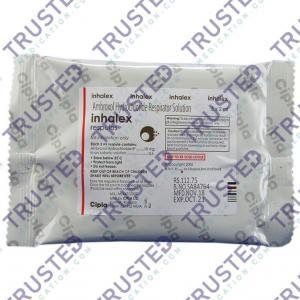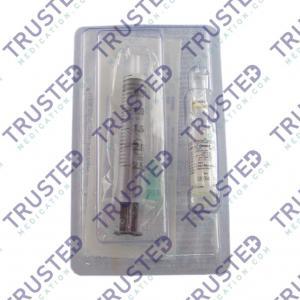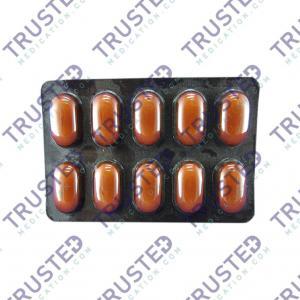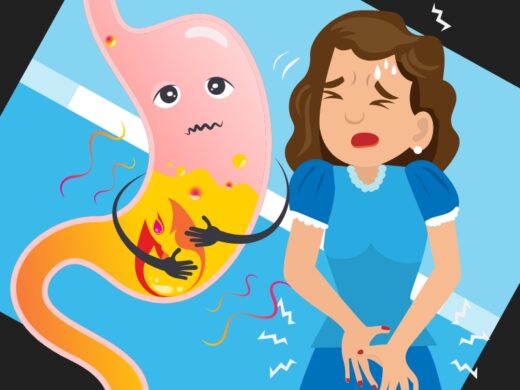
Heartburn is known to be a symptom of acid reflux. Heartburn is a burning pain in your chest that may worsen after eating, when lying down, or in the evening. Heartburn that is more frequent or interferes with your daily routine may be a symptom of a more serious condition that requires medical care.
What Are Stomach Ulcers?
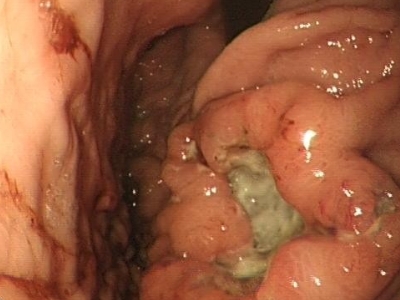
Stomach ulcers are sores that develop on the lining of the stomach. It is also known as gastric ulcers. You can also get ulcers in part of the intestine just beyond the stomach, which are called duodenal ulcers. Stomach ulcers and duodenal ulcers sometimes called peptic ulcers, cause the same symptoms, and treatment for both is the same.
What Symptoms To Look Out For
Common ulcer symptoms include:
- The discomfort lasts for minutes or hours
- Bloating, burning, or dull pain in your stomach
- Stomach pain that wakes you up at night
- Feel full fast
- Discomfort between meals or during the night
- Discomfort when you eat or drink
If your ulcer becomes perforated, it becomes a bleeding ulcer. This can cause the following symptoms:
- Vomiting blood
- Unexpected weight loss
- Nausea
- Blood in your stool or dark stools
- Pain in your back
What Causes Stomach Ulcer
The most common cause of stomach ulcers is Helicobacter pylori infection (H. pylori), or taking anti-inflammatory drugs (NSAIDs). An ulcer form when the stomach lining becomes damaged due to these factors, allowing the acid it produces to digest food to damage the lining.
In addition, smoking cigarettes and drinking alcohol can make you more likely to get ulcers. Stress and eating a lot of spicy food don’t cause ulcers, as experts once thought.
How Does It Get Diagnosed
If your healthcare provider thinks you have a stomach ulcer, you may be tested for Helicobacter pylori (H. pylori) infection. If your symptoms are caused by an H. pylori infection, they may recommend one of the following tests:
- A stool antigen test – a small stool sample is tested for the bacteria
- A urea breath test – you’ll be given a drink containing urea your breath is then checked after
- A blood test – a sample of your blood is tested for antibodies to the H. pylori bacteria; this has now largely been replaced by the stool antigen test
Moreover, gastroscopy may also be recommended. It is a test to look inside your stomach directly and see whether you have a stomach ulcer. A gastroscopy is carried out at a hospital and usually on the same day, so you won’t have to spend the night in the hospital.
What Are Its Complications and Risk Factors
The link between spicy foods and mental stress and ulcers was previously believed, but no hard evidence exists to support this. Lifestyle factors can aggravate ulcer symptoms. As a result, stress, smoking, and spicy foods are seen as risk factors rather than direct causes.
In addition, anything that irritates the natural balance of digestive enzymes and stomach acid increases the chances of developing a stomach ulcer. Excessive consumption of alcohol can damage the mucosal wall of the stomach and increase stomach acid production. An ulcer can occur when alcohol is taken with painkillers.
If a stomach ulcer is left untreated, there might be complications including:
- Internal bleeding
- Obstruction
- Infection
Treatment For Stomach Ulcer
Treatment for stomach ulcers depends on the cause. Usually, treatment will involve killing the H. pylori bacterium if present, removing, or reducing the use of NSAIDs if possible, and helping your ulcer to heal with medication.
Recommended medication:
- Ranitidine – this is an oral medication that is in the class of drugs known as histamine-2 blockers. This works by blocking the histamines that stimulate the cells from producing acid in the stomach.
You may also find relief from the pain of a stomach ulcer if you:
- Control stress. Stress may worsen the signs and symptoms of a stomach ulcer.
- Don’t smoke. Smoking also increases stomach acid.
- Limit or avoid alcohol. Excessive use of alcohol can irritate and erode the mucous lining in your stomach and intestines which causes inflammation and bleeding.



